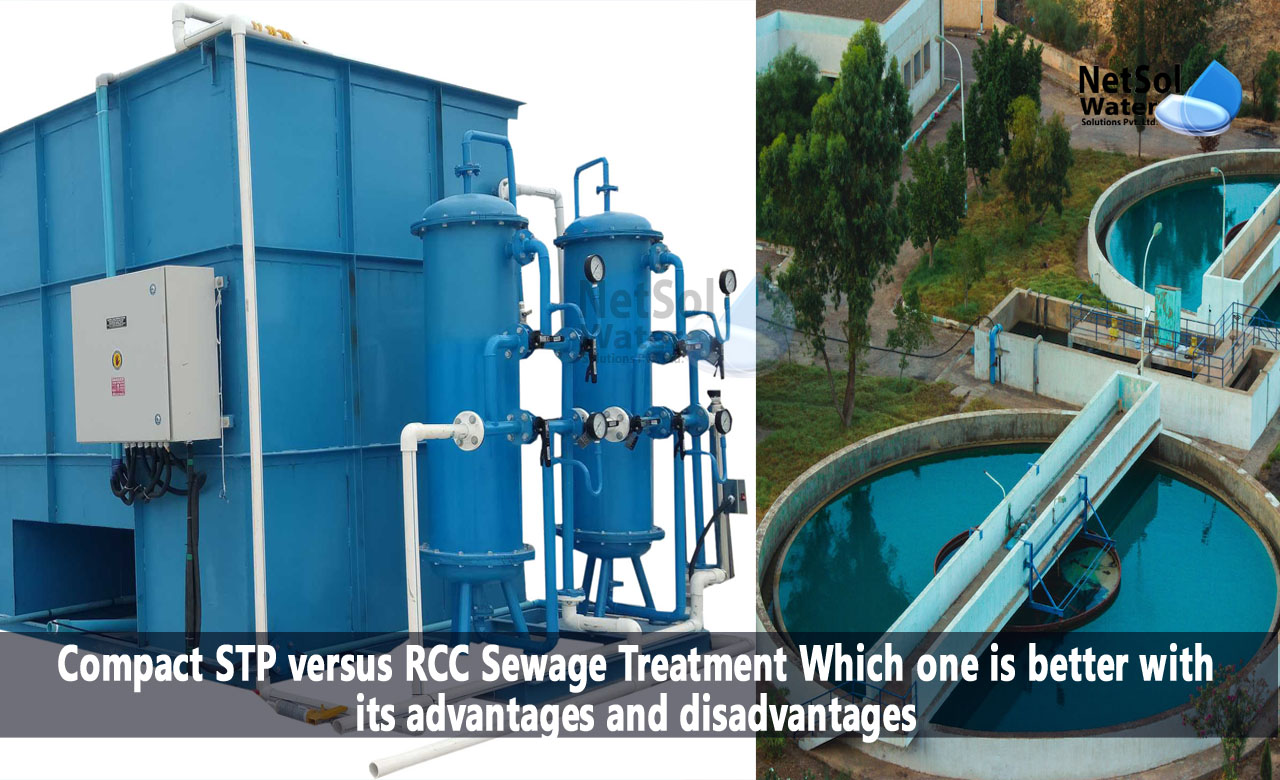Compact STP versus RCC Sewage Treatment
Sewage treatment is an essential process that ensures the safe disposal of wastewater and protects public health and the environment. Two popular sewage treatment methods are Compact Sewage Treatment Plants (CSTP) and Reinforced Cement Concrete (RCC) Sewage Treatment.
In this blog, we will compare these two methods and discuss their advantages and disadvantages.
Compact Sewage Treatment Plant
A Compact Sewage Treatment Plant (CSTP) is a prefabricated wastewater treatment system that can be installed above or below ground. CSTPs are often used for smaller applications, such as residential complexes, hotels, and schools.
Here are some of the advantages and disadvantages of CSTPs:
Advantages of CSTPs:
- Compact Design: CSTPs are designed to take up minimal space and can be easily installed in small areas, making them ideal for sites where space is limited.
- Lower Operating Costs: CSTPs use less energy than traditional sewage treatment plants, resulting in lower operating costs.
- Lower Maintenance Costs: CSTPs require less maintenance than traditional sewage treatment plants, reducing maintenance costs.
- Quick Installation: CSTPs can be installed quickly, reducing downtime and minimizing disruptions to the surrounding area.
Disadvantages of CSTPs:
- Limited Capacity: CSTPs are designed for smaller applications and may not be suitable for larger projects.
- Limited Flexibility: CSTPs are pre-designed and pre-fabricated, which limits their flexibility to be customized for specific needs.
- Shorter Lifespan: CSTPs typically have a shorter lifespan than traditional sewage treatment plants.
Reinforced Cement Concrete Sewage Treatment
Reinforced Cement Concrete (RCC) Sewage Treatment is a traditional method that uses a combination of physical, biological, and chemical processes to treat wastewater. RCC Sewage Treatment is often used for larger applications, such as industrial complexes and municipal wastewater treatment plants. Here are some of the advantages and disadvantages of RCC Sewage Treatment:
Advantages of RCC Sewage Treatment:
- High Capacity: RCC Sewage Treatment is designed for larger applications and can handle significant volumes of wastewater.
- Customizable: RCC Sewage Treatment can be customized to meet specific needs, making it ideal for projects with unique requirements.
- Longer Lifespan: RCC Sewage Treatment has a longer lifespan than CSTPs, reducing the need for frequent replacements or upgrades.
Disadvantages of RCC Sewage Treatment:
- Higher Operating Costs: RCC Sewage Treatment requires more energy to operate than CSTPs, resulting in higher operating costs.
- Higher Maintenance Costs: RCC Sewage Treatment requires more maintenance than CSTPs, resulting in higher maintenance costs.
- Longer Installation Time: RCC Sewage Treatment requires more time to install than CSTPs, which can cause more significant disruptions to the surrounding area.
Conclusion:
In conclusion, both Compact Sewage Treatment Plants (CSTPs) and Reinforced Cement Concrete (RCC) Sewage Treatment have their advantages and disadvantages. CSTPs are ideal for smaller applications and offer lower operating and maintenance costs, while RCC Sewage Treatment is better suited for larger applications and can be customized to meet specific needs. Ultimately, the choice between CSTPs and RCC Sewage Treatment will depend on the specific needs and requirements of each project, and careful consideration should be given to both options before making a decision.
For any other support, inquiries, or product purchases, call on +91-9650608473 or email at enquiry@netsolwater.com



